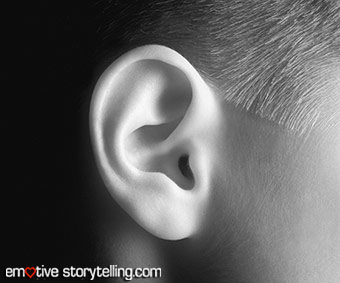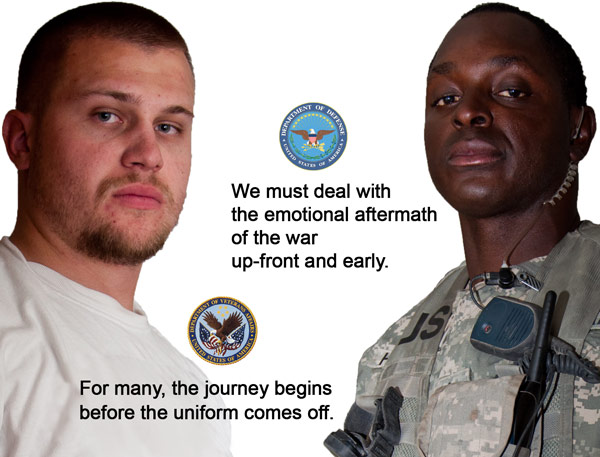Hi, I’m Dr. Gerard Gibbons, on-location in the Owens Valley, one of the most magnificent landscapes in the world. A good place to demonstrate how important perspective, memories and stories can be. Continue Reading →
Home » Emotive Storytelling » Page 2
Tag Archives | Emotive Storytelling
Story vs. Narrative
Hello, I’m Dr. Gerard Gibbons with emotive storytelling.com with a few comments to share against the backdrop of this majestic scenery.
Storytelling was the hot topic at the most recent SXSW interactive conference in Austin, Texas. Continue Reading →
It’s All About Behavior Change
Let me ask you a question. What do these concepts have in common?
Prevention, compliance, marketing, sales, assertive communication, setting limits, and incentives.
Look closely. The commonality may not be obvious because they are each associated with diverse areas of endeavor including medicine, business, interpersonal relationships, morale building and parenting.
Give up? Continue Reading →
Stories are Infectious
Tell me a story.
How often have you heard that? As a parent, no doubt you have – many times from your kids. Hello, I’m Dr. Gerard Gibbons founder of emotivestorytelling.com. There is always a tug on my heart when my little girl says daddy, tell me a story. And of course I love tell her stories. This is Emotive Storytelling. Continue Reading →
Emotive Storytelling and The Challenge of Change
What is change? Most agree that “change” is the only permanent aspect of the universe.
Scientists acknowledge that matter changes — matter is the elementary substance of life. Evolutionary biologists tell us that our survival as a species, has depended on genetic changes. Over the ages, humans have had to adapt to a constantly changing environment.
And on the individual level, from the moment we’re born and throughout life, our physical body is undergoing constant change. So, we seem to have no problem accepting change as a fact of life.
Or do we? When it comes to the nature of the mind and human behavior change – its a different story.

World Philosopher
Jiddu Krishnamurti
It’s hard to change that aspect of who we are. That’s the challenge of change. Many of us think it’s too impractical or demanding. And when we do change occasionally, it seems most often – it’s a response to events or at the urging of others.
The 20th Century Indian and World Philosopher Krishnamurti – said it this way: “We must see the importance and absolute necessity of change. Changing ourselves in relationships, in our activities and in the process of our thinking. We all desire to help the world, but we never begin with ourselves.”
Think about it. Trying to change society while leaving individuals who make up society “unchanged”, is not only unproductive, it’s naïve.
Krishnamurti goes on to say “We want to reform the world, but the fundamental change must first take place within ourselves.” This means “…a change in our orientation, in our outlook, in our values, in our contacts, in the manner of our behavior and in the way of our thinking.”
No place is this more important than in regard to behavior change.

American Philosopher
Kenneth Burke
“Stories are instruments of change.” That was said by American philosopher Kenneth Burke. I agree with him and Krishnamurti.
Stories are capable of driving change in us. We are moved by them and make sense of our world through them. They can initiate change in our families and relationships. They can change understanding in our patients, customers and clients.
Stories open the door to the possibility. They enable us to be receptive to different viewpoints, to the lessons of others and to the value of making changes in our behavior.
In fact, stories may be the most effective way into the mind that will get us to even consider changing at all.
Since change is a fact of life perhaps you should help it happen with a story. You may go a lot farther with whatever you are trying to change. Something to consider.
Behavior Change through Narrative Communication
Narrative Communication and Behavior Change through Emotive Storytelling
Inspired Listening
 We’ve all faced a scenario like this: we sit through a meeting, presentation or conference, listen to catch what we can, take lots of notes, and then think to ourselves “Good—I got it” as the situation ends.
We’ve all faced a scenario like this: we sit through a meeting, presentation or conference, listen to catch what we can, take lots of notes, and then think to ourselves “Good—I got it” as the situation ends.
But did we really?
Did we understand what the speaker was trying to communicate?
Emotive Storytelling: The Me To We Factor
Let me tell you a story about what a guy named Peter Guber has learned about storytelling. Peter Guber is a successful film producer whose films have earned over 3 billion dollars and have captured 50 Academy Award nominations. He is also an owner of two major league sports franchises. So he’s got some cred. Continue Reading →
The Best Story Wins

The Best Story Wins
Years ago, mealtimes in many homes meant story time – retellings of work experiences, report cards and bargains. When friends, uncles and aunts came to visit and mealtimes were longer, there was more storytelling, gossiping and laughing. (And yes, crying and arguing were part of those stories, too.) Continue Reading →
Storytellers Need Storylisteners
 He can only hear his story: He found her in bed with another man when he returned from an important mission. She can only hear her story: She’s tired of being his second wife – the military is his first.
He can only hear his story: He found her in bed with another man when he returned from an important mission. She can only hear her story: She’s tired of being his second wife – the military is his first.
They’ve got four kids. And along with their wedding vows, they promised each other an ugly divorce – if it came to that.
Each thinks the other is the villain. But they’re about to learn the name of the real enemy. Continue Reading →
The Journey Begins Before the Uniform Comes Off
 Joe read the Go Army ads and enlisted. He’s a good guy. Not Harvard or Stanford material, but a hard worker, a guy who knows that courage is acting in spite of fear. He was also thinking about the post-deployment perks when he signed the papers.
Joe read the Go Army ads and enlisted. He’s a good guy. Not Harvard or Stanford material, but a hard worker, a guy who knows that courage is acting in spite of fear. He was also thinking about the post-deployment perks when he signed the papers.
So he goes through kick-butt training, gets deployed, gets knocked down, and two years later comes home with PTSD and mild traumatic brain injury.

